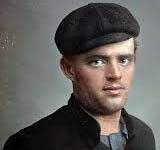Charles Dickens | Great Expectation as a Bildungsroman
Charles Dickens | Great Expectation as a Bildungsroman
Charles Dickens | Great Expectation as a Bildungsroman
or
Charles Dickens | Great Expectation as a Novel of Growth
Bildungsroman’ is a phrase made of two distinct words- one is the German word ‘Bildung’ which means shaping or formation and the other is the French word ‘roman’ which means a story or a novel. Literary the term bildungsroman refers to a genre of novel that deals with the theme of a person’s (hero’s) intellectual, psychological and moral growth from childhood to maturity. In other words, to say, this type of novel traces the process of a young person’s self-understanding and a sense of social responsibility. In English, the term ‘bildungsroman’ may be translated as Novel of Growth. The credit for being the exponent of this genre of the novel goes to the German writer J. W. Von Goethe. His ‘Wilhelm Meister’s Apprenticeship’ is said to be the paradigm of this genre of novel. In English, some novels by George Eliot, Henry James, Charles Dickens and some others belong to this genre of bildungsroman. There are some features (characteristics) that are traced to be common to this genre of novel, they are- (i) it deals with the theme of a person’s (hero’s) mental and moral growth, he belongs to the plebeian class of society, he is often orphan adopted by a negligent relative, he encounters a number of problems and difficulties which cause him to suffer in life, he often becomes the victims of circumstances, he has a flaw of character but not of a serious kind, he wonders from place to place in search of fortune and social position, he involves in an unsatisfactory love affairs (ii) characters are drawn from the middle and lower classes of society, the characters are types as well as individual. (iii) The story is told in the first person (in an autobiographical style), (iv) there is a blend of humour and pathos. The pathos prevails over humour, (v) the structure is neither rigid nor flexible but well and (vi) like tragic-comedy it makes a happy ending. Charles Dickens’ (1812- 1870) novel entitled ‘Great Expectation’ bears all the common characteristics of a bildungsroman. We can illustrate this novel as a bildungsroman below:
First, Philip Pirrip (Pip in brief) the hero of the novel belongs to the plebeian class of society. He is an orphan, adopted by his sister Mrs. Gregory. He gets ill treatment from his sister and then wanders from place to place in search of fortune and social position. The novelist Charles Dickens deals with Pip’s intellectual and moral development from his childhood to maturity and has shown his stages of growth that establish him as a socially responsible person. There are distinct stages of Pip’s mental growth. His first stage begins in the house of Mr. and Mrs. Gregory where he was ill-treated by his sister Mrs. Gregory. The only person who treated him with sympathy was his brother-in-law Mr. Joe. During this stage, Pip grew as a mere child with a bitter sense of life, without having any sense of aspiration and aim in life. In this stage, circumstances turned him to steal some food for a convict called Magwitch. Since then, his sense of guilt began to germinate within himself. His second stage began when he took to visiting the house of Mrs. Havisham. In this house, he experienced the bitter cruelty of the female sex. This stage may be called the turning point of his life that opened the door of his aspiration to the cultured but artificial gentle class of society. In this stage, his mentality develops to the realization of the need for money and social position in life. Along with this, his wandering life began where he met a variety of people and learned many practical things in life. In this stage, he became a snob, something arrogant, artificial and conscious of self-respect. For example, during his days in London, his patron Mr. Joe visited him and then he treated Joe with coolness. His manner and attitude to Magwitch, one of his beneficiaries, also proved his snobbishness and sense of self-respect. But after this, his third stage of mental growth begins and he begins to feel social and humane values. He begins to develop into a man of social responsibility. For instance, we see his basic goodness in his setting up his friend Herbert in a business financed by him. We see his goodness in obtaining some money in favour of Herbert from Miss Havisham. His treatment which he took towards Magwitch in his last days proves Pip’s humane qualities and sense of social responsibility. We see his goodness in the sympathy he feels for the convicts who were sentenced to death. Thus at the end of the novel, we see Pip as a really better person than he was in the beginning. In this last phase, he is better spoken, better read, better mannered and better felt. In brief, to say, the novelist develops his hero Pip from a nonentity to a moral hero.
Secondly, the characters have been drawn from the lower class and the middle class of society. Pip the hero, Magwitch and Compeyson the convicts belong to the lower class and the other characters like Miss Havisham, Herbert, Mr. Jaggers and Wemmick belong to the middle class of society. All these characters have the strength and weaknesses of their respective class. Some of these characters are drawn as types with some individual traits. For example, Mr. Magwitch is a type of the lower class of society, but he has some individual traits of generosity, sympathy and kindness for the poor, especially for Pip. He becomes a benefactor of Pip later on.
Thirdly, the novel is written in the first person (in autobiographical style) as a bildungsroman is usually written. The narrator of the novel is Philip Pirrip. He uses the first person ‘I’ in his narration, as:
”Towards the Joe and Joe only, I considered myself as a young monster.”
Fourthly, as a bildungsroman blends humour with pathos, so is the novel ‘Great Expectation’. There is plenty of humour in characters like Havisham, Mr. Jagger, Wemmick and so on. But all the humorous elements are overcome by the use of pathos in the novel. The life of Pip, Miss Havisham, Magwitch, Mr. Joe and so few others are full of tragedy and pathos.
Fifthly, the construction of the novel is well and compact, not flexible. The story of the novel has a beginning, middle and end which are apparently clear and neat. Though the novelist is very discriminating in giving a description of all the episodes, he is nowhere irksome and prolix.
Sixthly, like a true bildungsroman, the novel ‘Great Expectation’ also makes a happy ending. At the closing of the novel, we see that Pip has found a social position both mentally and economically. Besides this, he is united with his former lover by the name of Stella. Pip says:
”I took her hand in mine, and we went out of the ruined place…I saw no show of another Parting from her.”
From the above illustration of the novel, we see that all the common characteristics of a bildungsroman (the novel of growth) are vividly present in the novel and for which it may be called an exemplary bildungsroman in the English language. 0 0 0 Great Expectation as a Bildungsroman
Charles Dickens | Great Expectation as a Bildungsroman
Read More: The Theme of George Eliot’s Novel ‘Middlemarch’
N. B. This article entitled ‘Charles Dickens | Great Expectation as a Bildungsroman’ originally belongs to the book ‘World Novel Criticism‘ by Menonim Menonimus. Charles Dickens | Great Expectation as a Bildungsroman
Books of Literary Criticism by M. Menonimus:
- World Short Story Criticism
- World Poetry Criticism
- World Drama Criticism
- World Novel Criticism
- World Essay Criticism
- Indian English Poetry Criticism
- Indian English Poets and Poetry Chief Features
- Emily Dickinson’s Poetry-A Thematic Study
- Walt Whitman’s Poetry-A Thematic Study
- Critical Essays on English Poetry
- Tawfiq al-Hakim’s Novel: Return of the Spirit-An Analytical Study
- Tawfiq al-Hakim’s Novel: ‘Yawmiyyat Naib Fil Arayaf’-An Analytical Study
- Analytical Studies of Some Arabic Short Stories
- A Brief History of Arabic Literature: Pre-Islamic Period …











